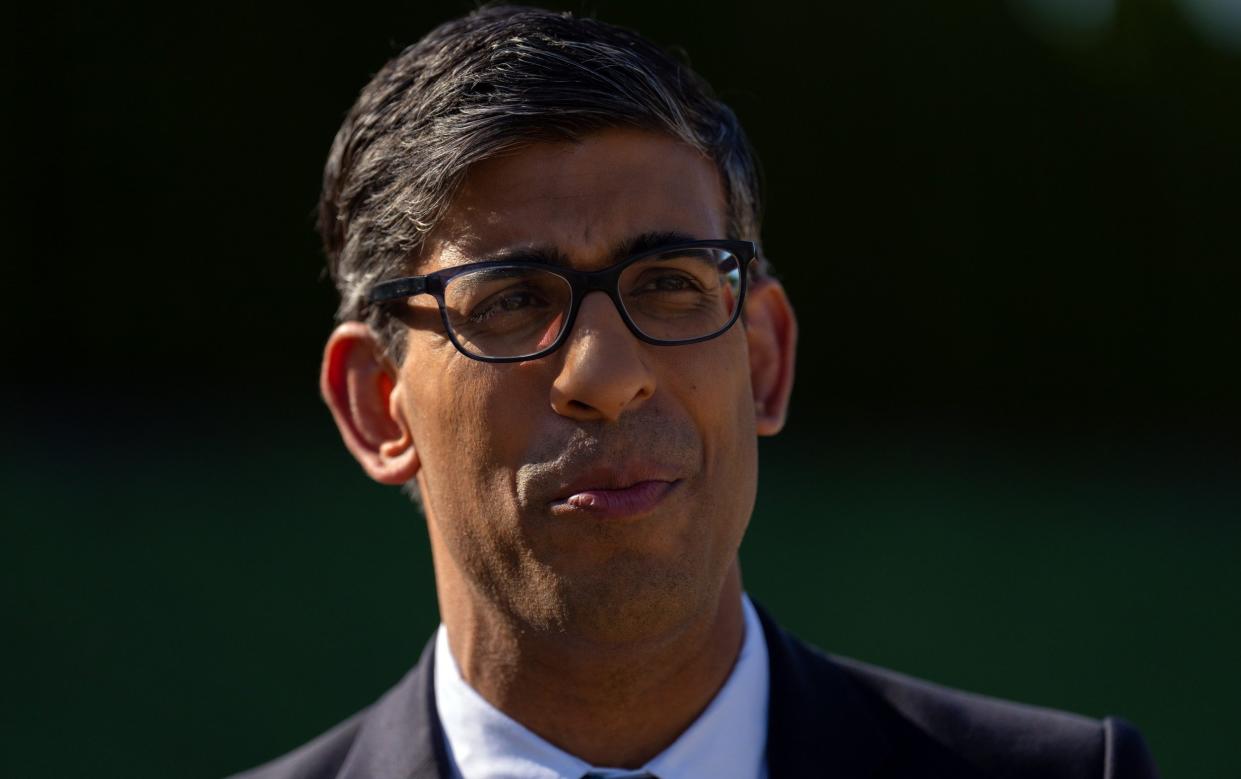Fears Rishi Sunak will renege on promise to clarify definition of biological sex

Rishi Sunak is facing calls to make a public “cast iron guarantee” to follow through on a pledge to rewrite equality law to protect women, amid Tory MPs’ fears that he will renege on his promise.
Conservative backbenchers are planning to challenge Maria Caulfield, the minister for women, to give an undertaking in the Commons that Mr Sunak will deliver on his promised legal changes to ensure that “mothers and women are not erased from public life”.
Sources close to the Prime Minister insist he remains committed to the pledge, with one saying that the Government is carefully considering advice from the Equality and Human Rights Commission on the matter and another saying, “It’s certainly not being delayed or dropped”.
But senior Tories fear that the party will lose its opportunity to change the law if Mr Sunak fails to act swiftly ahead of an election next year.
One backbencher said: “There is a debate within government about whether this is a hill to die on and it’s unclear how much of a row the Government wants, doing this in the run-up to an election. But if they can’t say what a woman is by the time we go into an election we’re in trouble.”
‘Still a huge amount of confusion’
In response to growing calls for the Government to make it easier to bar trans people from female sports and single-sex spaces, Mr Sunak issued a pledge during his leadership campaign last year to “ensure that the Equality Act is clear that sex means biological sex”. He said: “I think biology is critically important as we think about some of the very practical functions, like toilets or sports.”
Campaigners and many Tory MPs say the change is needed to give clarity to bodies from NHS hospitals to sports authorities who have said that the current drafting of the Labour-era legislation fails to make clear that protections given to people on the basis of their “sex” do not apply to those who identify as a different gender to their biological sex.
The status quo has caused confusion over whether trans women can be barred from participating in women’s sports or entering female-only spaces such as hospital wards, changing rooms and rape refuges.
On June 12, MPs will use a Westminster Hall debate to demand assurances from Ms Caulfield that Mr Sunak will deliver the change before the next election, in which case the Government would be expected to announce specific plans within months.
Damian Green, the former first secretary of state, said: “It’s very important that the Government makes it clear that it will clarify the definition in this Parliament, and gives us a timescale as soon as possible.”
Baroness Jenkin, a prominent Tory campaigner for women’s rights, said: “There is still a huge amount of confusion about the protected characteristics in the Equality Act and I think people are hoping for clarification.”
Toxic public debate
Maya Forstater, director of the Sex Matters campaign group, who started one of the two petitions that led to the debate planned for June 12, said: “We would like to hear ... a cast iron guarantee that they are going to fix the problem with the Equality Act and the Gender Recognition Act. They cannot leave the interaction between these two laws ambiguous any longer. The lack of clarity in the law is what has allowed the public debate to be so toxic.
“They can do this with a short consultation and secondary legislation so there is no need to drag it out.
“Getting clarity that the Equality Act treats sex discrimination and discrimination against trans people as two separate things would allow the Equality and Human Rights Commission to get on and write clear simple guidance. It ought to be so simple and clear it can fit on a postcard.”
A No 10 source insisted that the change had to be approached “thoughtfully” and “that does take time”.
Supporters believe that Mr Sunak and his ministers were given “political cover” to make the change when Baroness Falkner, who chairs the Equality and Human Rights Commission, wrote to Kemi Badenoch, the equalities minister, in April, recommending that the Government consider explicitly protecting “biological sex” rather than just “sex” in the 2010 Equality Act to “bring legal clarity”.

 Yahoo News
Yahoo News 